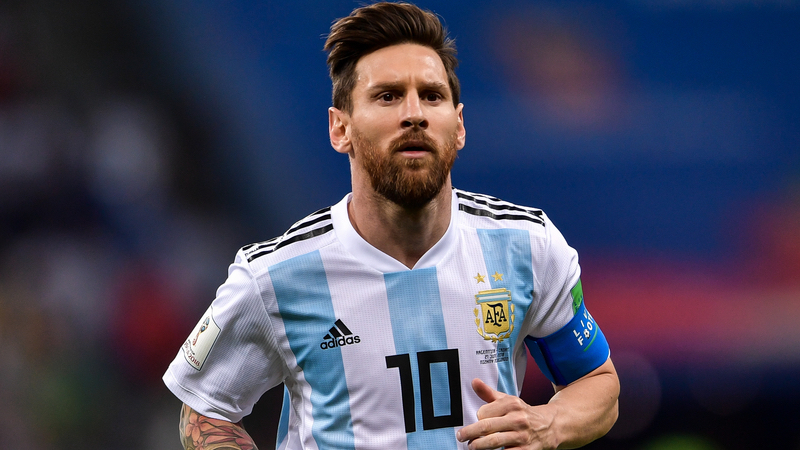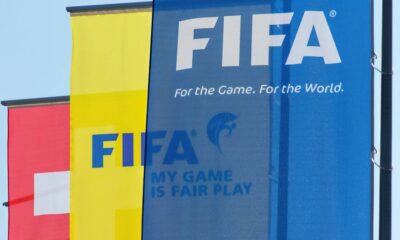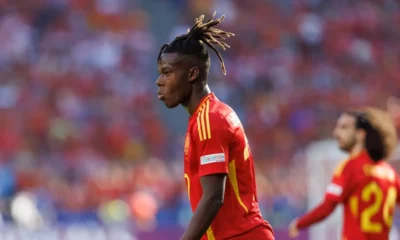Football
World Cup 2022 in Qatar: Controversy and strict bans, Germany’s shocking collapse, Messi wins coveted gold!
The World Championship in Qatar was the twenty-second championship in history and unfortunately the Czech national team did not make it again. The gold medals went to Argentina, with Lionel Messi recording a great career thanks to this triumph. And as is usual in the history of world championships, Qatar witnessed many controversies and bans.

The World Championship in Qatar was the twenty-second championship in history and unfortunately the Czech national team did not make it again. The gold medals went to the Argentine footballers, with Lionel Messi making a great career record thanks to this triumph. And as is usual in the history of world championships, Qatar witnessed many controversies and bans.
It is a championship that all football fans still have vivid memories of, even if the 2022 World Cup in Qatar is already history. And the 2022 World Cup in Qatar is our latest installment in a long series on World Cups since 1930. For the first time in the history of the World Cup, this tournament was held on Arab territory and outside the traditional summer dates.
Qatar, as the host of the last World Cup, beat the USA, Japan, South Korea and Australia in its bid, with a total of five cities and eight stadiums sharing the hosting rights respectively.
Specifically, these were Al Khura, Lusail, Doha, Al Rajan and Al Wakrah. However, there is one big interesting thing about the stadiums. Some of them were to be dismantled after the tournament and used for other purposes.
And, as usual, this World Cup has not escaped controversy in terms of its organisation. We cover all of them in detail in our special attached above. However, these were mainly about discrimination against the LGBT community and women, the legal system in Qatar or the employment of migrants.
Qualifiers
A total of 206 countries entered the qualifiers for the 2022 World Cup in Qatar, fighting for a total of 31 spots. Qatar, as the host, automatically qualified for the World Cup. Similar to the previous championship in Russia, the Italian national team did not qualify for Qatar.
The Czech Republic was also without a participant, although unfortunately, unsurprisingly, the Czech Republic. Canada, on the other hand, qualified for the World Cup for the second time in its history. A total of 13 European countries, 7 American countries, 6 African countries, 5 Asian countries and Australia as the representative of Oceania took part in the 2022 World Cup in Qatar.
EUROPE – Germany, Denmark, France, Belgium, Croatia, Serbia, Spain, England, Switzerland, Netherlands, Portugal, Poland, Wales
AMERICA – Brazil, Argentina, Uruguay, Canada, Mexico, USA, Costa Rica
AFRICA – Ecuador, Ghana, Senegal, Tunisia, Morocco, Cameroon
ASIA – Qatar, Iran, South Korea, Japan, Saudi Arabia
OCEANIA – Australia
Group stage
It wouldn’t be a true World Cup if the tournament, or rather the preliminary groups, didn’t deliver some shocks. In Qatar, a huge surprise, albeit a negative one, was provided by the Germans who failed to advance out of the Group E preliminary round. They left only fourth-placed Costa Rica behind, but fell short of first-placed Japan and second-placed Spain.
As we write above, not only the controversy surrounding the 2022 World Cup in Qatar, but also its actual proceedings, are the subject of our special feature attached above. There, you will learn other interesting tidbits related to the non-advancement of Germany and other teams.
The second big surprise was offered by Group F, from which Belgium did not advance. On the other hand, the football world was very positively impressed by Morocco, which dominated this group. Along with it, Croatia also advanced to the knockout phase.
As far as the other core groups are concerned, it can be interpreted that the one who should have advanced from each of them. It is true, however, that Serbia was also a considerable disappointment, failing to make it through its group. Although it had tough opponents in the form of Brazil, Switzerland and Cameroon in the group.
Many probably also expected Uruguay to advance. The favoured Portuguese made it to the eighth round, while South Korea were also more successful in their battle to qualify. Denmark also failed to impress at the tournament, finishing last in Group D behind France, Australia and Tunisia. So which teams made it through to the next stage?
Netherlands, Senegal, England, USA, Argentina, Poland, France, Australia, Japan, Spain, Morocco, Croatia, Brazil, Switzerland, Portugal and South Korea.
The knockout phase
Apart from two matches, most of the eight-final clashes offered fairly clear results. The Netherlands got past the USA (3::1), Argentina got past Australia (2::1), France got past Poland (3::1), England got past Senegal (3::0), Brazil knocked out South Korea 4::1 and Portugal downed the Swiss 6::1.
Two matches had to be decided by penalty kicks. Japan, after a fairly even match, failed to win the penalty shootout against Croatia, while the first team managed the great match between Morocco and Spain better. The Spaniards did not convert a single penalty kick, while three accurate penalties ensured the Moroccans’ progress to the quarter-finals.
This has already brought much tougher and closer battles, including many shocking results. Favoured Brazil failed to beat Croatia and went home on penalties. The match between the Netherlands and Argentina offered an infectious end to the match.
However, Lionel Messi and co. won the penalty shootout 4:3 and advanced further. The Moroccans were only one goal away from eliminating the Portuguese, while England fell to France (1: 2) in a tight contest. Olivier Giroud scored the winning goal. The semi-final battles did not bring any surprises, quite the opposite.
Argentina beat Croatia 3: 0, with Messi scoring once and Julián Álvarez twice. France faced Morocco in the semi-finals, who despite a very pleasing performance did not progress further. However, they still set a record by becoming the first African team in history to reach the semi-finals.
France advanced to the final after goals from Theo Hernández and Randal Kolo Muani. The Moroccans, despite the wishes of a large number of football fans, did not even take bronze from Qatar. Joško Gvardiol sent Croatia into the lead in the seventh minute, but Dari equalised two minutes later. However, Mislav Orsic decided the bronze for the Croats in the 42nd minute.
The final match between Argentina and France was a spectacular show, especially from the end of the second half onwards. Despite a fierce performance and the incredible play of Kylian Mbappé, it was not enough for the French. The South American side eventually celebrated winning the gold medals, with the star Messi finally reaching the coveted trophy that had been missing from his showcase of achievements until then.
Speaking of numbers…
As usual, a total of 64 matches were played at the 2022 World Cup in Qatar, in which a total of 172 goals were scored (an average of 2.69 per game). Attendance reached 3,404,252, or 53,191 spectators per game.
Mbappé was the top scorer of the championship with a total of 8 goals. However, the trophies for best goalkeeper, best player and best youngest player went to the Argentines. Specifically Messi, Emiliano Martínez and Enzo Fernández. Thus, although the 2022 World Cup in Qatar was associated with great controversy, it must be acknowledged that the host country managed it organizationally. Sportingly, it was once again a successful championship.
FIFA, ESPN

-
Bundesliga7 days ago
Leverkusen on the hunt again! The German champion is luring the former Liverpool star to his side. Stoper Matip is now without a contract
-
More7 days ago
Lance Armstrong or The Greatest Cheat in Tour de France History
-
Motorsport6 days ago
Red flags and two bad accidents. McLaren dominated F1 qualifying in Hungary, Verstappen again on the second row
-
Football6 days ago
Will Soucek have a star competitor? West Ham are very interested in Kanté

















